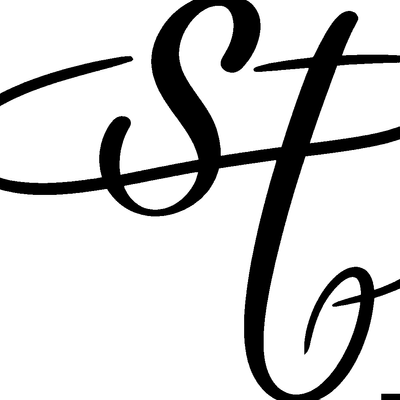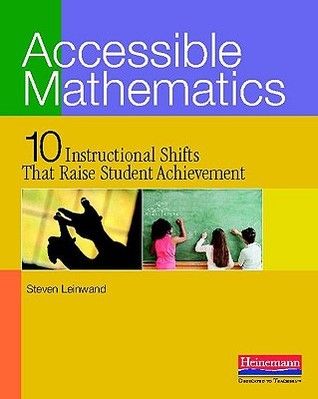Organize Your Teaching: A Roadmap for Better Lesson Planning

Hello friends!
I am going to share several pieces of advice I wish I would have known when I started teaching years ago. Strap in for a roadmap to a smoother, more efficient teaching experience! Note that while this is targeted at teachers, the principles can be used for any kind of goal-setting where organization is needed.
📅 See the Forest for the Trees: Mapping Out The Whole Unit with Your Calendar
First things first, use a calendar or spreadsheet to visually map out your lesson units. It's like laying out a roadmap for your academic journey. Start by pinpointing your final project or assignment and then navigate backward, breaking down the unit into bite-sized, daily tasks. This approach keeps your focus sharp, helping you align each day's work with the end goal while also simultaneously keeping your students on a roadmap and knowing what to expect next.
🦶Improving, One Step at a Time: Small Changes, Big Results
Rome wasn't built in a day. Take it one step at a time. Start by improving one area, say transitions between activities, then move on to enhancing assessment tools like rubrics. Find ways to simplify complex concepts and continuously seek feedback from students and colleagues who sit in your class. Additionally, start by recording a video or audio of yourself teaching.
Self-reflection is crucial here; think of it as your personal GPS guiding you to better teaching strategies.
❤ The Students Are At The Heart of the Learning ️Process: Student Centred-Learning
Remember, an engaged student is a learning student! Design lessons that require active thinking, analysis, and application. Provide meaningful tasks, promote critical thinking, and foster opportunities for collaboration and discussion. Setting high expectations coupled with support encourages student initiative and keeps them motivated.
The students should be doing more work than the teacher, not the other way around!
🛞 Don't Reinvent the Wheel: Use Online Resources
A book I read a while ago, mentioned that whatever you're thinking of or stuck on, someone has already thought most of it before years to centuries ago and that includes coming up with the right resources for teaching!
TeachersPayTeachers.com is your friend when it comes to ready-made templates, rubrics, lesson ideas and more. Don't hesitate to invest in high-quality teaching materials, but always start by looking for free resources there. Go through free and paid materials for ideas on what you could adapt into your teaching style. Collaborating with other teachers can help you expand your resource pool as well.
You don't need to reinvent the wheel.
✍️ Paper or Pixels: Planning Tools Optimized for Your Needs
Whether you're a fan of paper lesson planners or prefer digital tools like Planbook or Notion, the goal is better organization. At the end of the day, all of these tools are operating on the same principle. Each tool has its perks, so choose what suits your style. I personally use an excel sheet as it can be run locally. All of the digital tools are able to rearrange lessons on days when a lesson cannot be held and needs to be postponed, whereas with pen and paper, it may need a lot of manual work to "rearrange" your schedule. This is something to consider, as regularly reviewing and updating your plans ensures coherence and alignment.
Plan it out.
🏖️ A Stress-free Start: Planning Ahead During Breaks
Summer breaks offer the perfect opportunity to plan for the upcoming school year. Use this time to outline your first few weeks in detail, anticipate potential challenges, and create a backlog of lesson ideas. But also remember to recharge and relax! If you have already planned your lessons from last year, then this is one less advice to follow, as you did most of the leg work.
Plan ahead.
🗄️ Documenting Lessons: An Investment of Time for Better Organization
Time invested in organizing and documenting lessons is time well spent. Develop a system for storing and categorizing your resources. Consistent file naming conventions, notes, and regular updates make retrieval a breeze. The naming system I use is having my file names begin with naming in the international date format "YYYY.MM.DD" which makes it easy to sort lessons by date and therefore the lesson order, and following the date in the name, I'd put the Grade and Lesson Topic. Sweet and easy. If one lesson has multiple resources, like a ppt, docs, mp4 files, and more, the lesson folder itself follows the same naming convention as mentioned previously.
Document it, label it, and store it.
🧙🏼♂️ The Magic of Laminating
If there is any piece of content you share every year, like a word on a word wall, decorations, the alphabet, and almost anything else that's paper that you can think of, lamination is your friend! I like to couple laminating with magnetic tape since classrooms these days have magnetic whiteboards and it gets rid of the worry of having to ruin some wall because you had to sticky tack or pin the words there.
🪪 Personalizing Your System: Aligning with Your Preferences and Teaching Style
Start with a basic organizational system and personalize it over time to align with your teaching style. Experiment, seek advice, observe others and continuously refine your system based on your evolving needs.
💪 Practice Makes Perfect
Finally, remember that efficient organization comes with practice. Allow yourself a learning curve and embrace a growth mindset. Reflect, seek feedback, adapt and grow.


Member discussion